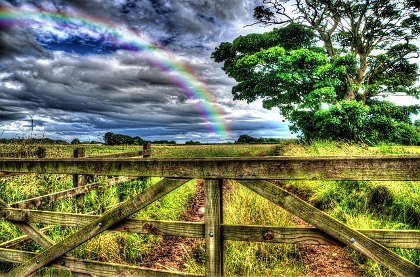
Global Agribusiness, Dependency and the Marginalisation of Self-Sufficiency, Organic Farming and Agroecology
Is organic-based farming merely a niche model of agriculture that is not capable of feeding the global population? Or does it have a major role to play?
In addressing these questions, it would be useful to consider a selection of relevant literature to see what it says about the role of organic farming, how this model of agriculture impacts farmers and whether or not it can actually feed the global population.
March 29, 2016 | Source: CounterPunch | by Colin Todhunter
Is organic-based farming merely a niche model of agriculture that is not capable of feeding the global population? Or does it have a major role to play?
In addressing these questions, it would be useful to consider a selection of relevant literature to see what it says about the role of organic farming, how this model of agriculture impacts farmers and whether or not it can actually feed the global population.
Organic farming and sustainable livelihoods
In ‘The impact of organic farming on food security in a regional and global perspective’, Halberg et al (2006) argue that while present food production in theory is sufficient to cover the energy and protein needs of the global population, there are still more than 740 million food insecure people, the majority of whom live in the Global South. The researchers indicate that if a conversion to organic farming of approximately 50% of the agricultural area in the Global South were to be carried out, it would result in increased self-sufficiency and decreased net food import to the region.
Following on from this, in the 2013 book ‘Organic Agriculture for Sustainable Livelihioods’ by Halberg and Muller, the authors suggest that organic crops tend to provide farmers with a higher net income compared to their conventional counterparts due to lower production costs. The book provides convincing evidence that organic farming has a positive influence on smallholder food security and livelihoods. This is important because smallholder agriculture is key to food production in the Global South, where food insecurity is most prevalent.
Aaron Iverson makes a pertinent point about this book: Halberg and Muller factor into their analyses the economic benefits of organic agriculture over conventional agriculture, which accrue over several years to decades. Iverson says that such analyses on these time scales are rare. Based on extensive research and modelling, the two authors indicate that organic farming promotes crop diversity, improves worker health due to less chemical exposure, increases social and human capital, increases farmland biodiversity, lowers pollution, increases soil fertility and is less financially risky due to lower upfront costs. Among other things, it also sequesters more soil carbon and is less vulnerable to climate change due to improved soil properties.
UN FAO: organic could feed the world
In 2007, the UN FAO (Food and Agriculture Organization) noted that the advantage of organic agriculture is that it relies on fossil-fuel independent and locally-available production assets. Organic models work with natural processes, increase cost-effectiveness and contribute to resilience in the face of climatic stress. The FAO concluded that by managing biodiversity in time (rotations) and space (mixed cropping), organic farmers use their labour and environmental factors to intensify production in a sustainable way and that organic agriculture could break the vicious circle of indebtedness for agricultural inputs, which causes an alarming rate of farmers’ suicides.
The FAO recognises that agroecology contributes to improved food self-reliance, the revitalisation of smallholder agriculture and enhanced employment opportunities. It asserts that organic agriculture could produce enough food on a global per capita basis for the current world population but with reduced environmental impact than conventional agriculture.
In a similar vein, although not focusing solely on organic, Jules Pretty et al note that sustainable, resource-conserving agriculture has the potential to significantly increase yields. It also improves nutrition, food security and crop diversity (contrast this with what Daniel Miangi says about the chemical-intensive mono-cropping system and its adverse impact on diet).
UN Special Rapporteur on agroecology and the right to food
Olivier De Schutter, former UN special Rapporteur on the right to food, produced this report in 2011 that was based on an extensive review of recent scientific literature. He concludes that, by applying agroecological principles to the design of democratically controlled agricultural systems, we can help to put an end to food crises and address climate-change and poverty challenges. He is not the only one who asserts organic farming is better suited to addressing climate-related challenges. This peer-reviewed paper also argues that organic is a “concrete and sustainable option” for adapting to climate change and variability.
De Schutter argues that agroecological approaches could address food needs in critical regions and could double food production in 10 years.
His report focussed on regions like Africa and South East Asia and showed an average crop yield increase of 80% in 57 developing countries, with an average increase of 116% for all African projects. Recent projects conducted in 20 African countries demonstrated a doubling of crop yields over a period of 3-10 years. However, De Schutter notes insufficient backing for organic-based farming seriously hinders progress.
And this last point should not be understated. For instance, the success of the green revolution is often touted, but how can we really evaluate it? If alternatives had been invested in to the same extent, if similar powerful and influential interests had invested in organic-based models, would we now not be pointing to the runaway successes of organic-based farming and, importantly, without the massive external costs of a polluted environment, less diverse diets, degraded soils and nutrient deficient food, ill health and so on?
And if green revolution technology and thinking had not been wedded to and fuelled and driven by powerful commercial and geopolitical interests, would it not have been employed more judiciously to serve farmers and the public better?
